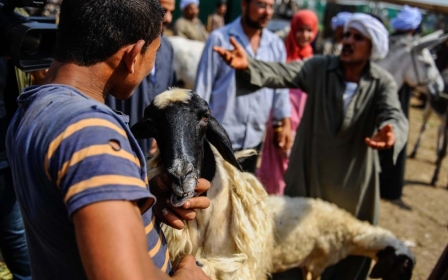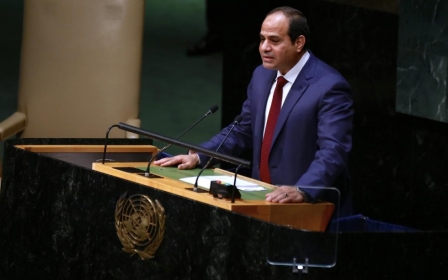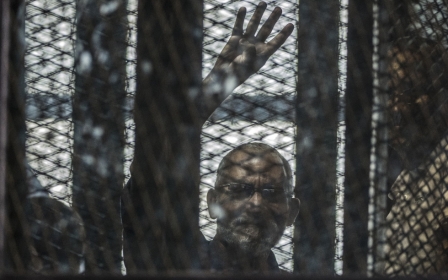Cairo posters tell story of Egypt's prisoners

Residents of Cairo awoke on Saturday to find the city plastered with posters.
Along main streets and on roundabouts, billboards and bus-stops were covered with portraits of political prisoners, young men and women smiling, and overlaid with the words: “They spend their Eid in prison.”
The posters, which coincided with the first day of the Muslim religious festival, were put up by activists to pressure the government to release hundreds of protesters who have been jailed in recent months on charges of violating a controversial protest law and inciting violence.
“The government wants to erase everything; the revolution, opposition groups, history, even people,” said Ahmed, an Egyptian activist in his early twenties who did not wish to share his second name.
Ahmed said that, fearing arrest, he and a group of friends had travelled through Cairo on motorbikes late on Friday night with shawls round their faces hastily putting up the pictures of the prisoners, then speeding home.
“They [the posters] are there to say you cannot do that. You cannot erase us. Put us in jail and our faces will remain on the streets.”
By Saturday evening most of the posters were gone, either taken down by street-cleaners or scribbled over, Ahmed said.
Since Abdel Fattah el-Sisi took control in Egypt though a military coup in July 2013, more than 20,000 people have been detained and more than 1,000 killed in a wide-reaching crackdown on political dissent.
The government has cracked down on demonstrations, tightened control of state media and prosecuted journalists.
A law introduced in November last year inhibits protests without prior police notification.
Ahmed Douma, a 26-year-old poet and political activist whose face was printed on the posters on Saturday, is one of several activists known for a role in the 2011 uprising that overthrew Hosni Mubarak, now languishing in jail.
Douma, who has been on hunger strike since August, was sentenced last year to three years in prison with hard labour and a fine of $7000 for his participation in protests illegal under the new protest law.
Addressing the General Assembly last week, President Sisi said he was building a new Egypt that “respects rights and freedoms” and “ensures the coexistence of all citizens without exclusion or discrimination.”
New MEE newsletter: Jerusalem Dispatch
Sign up to get the latest insights and analysis on Israel-Palestine, alongside Turkey Unpacked and other MEE newsletters
Middle East Eye delivers independent and unrivalled coverage and analysis of the Middle East, North Africa and beyond. To learn more about republishing this content and the associated fees, please fill out this form. More about MEE can be found here.




